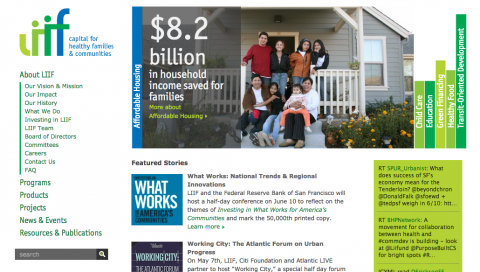Part of a family of companies that work together to serve the needs of low and moderate income residents of the DC metro area, City First Bank is a nationally chartered community development bank with assets of $214 million, deposits of $171 million, and loans of $152 million, 80 percent of which are made to businesses in low-income communities. Since its establishment in 1998, the bank has financed more than 5,371 units of affordable housing and helped create or retain over 4,368 jobs. Read more about City First Bank...
